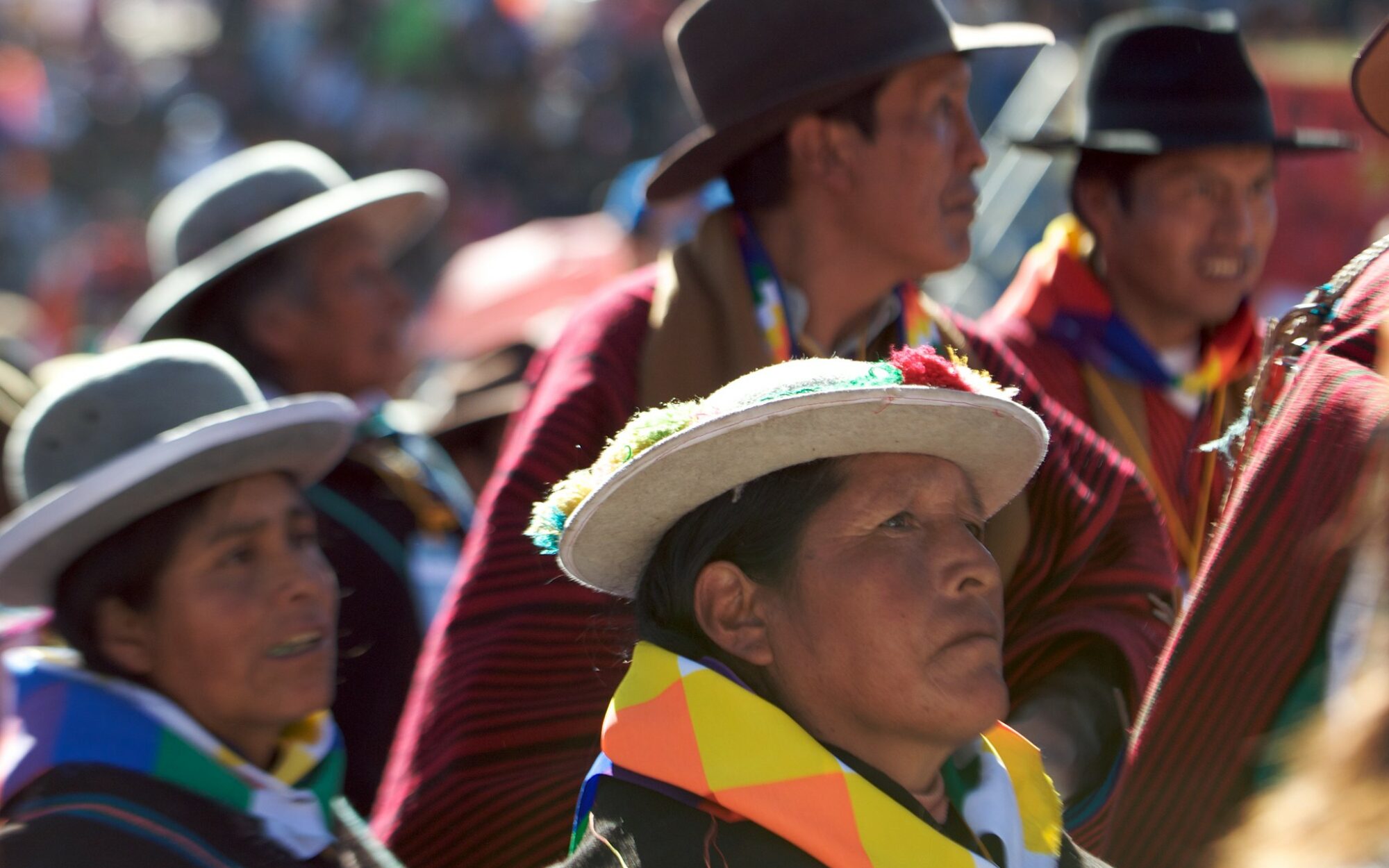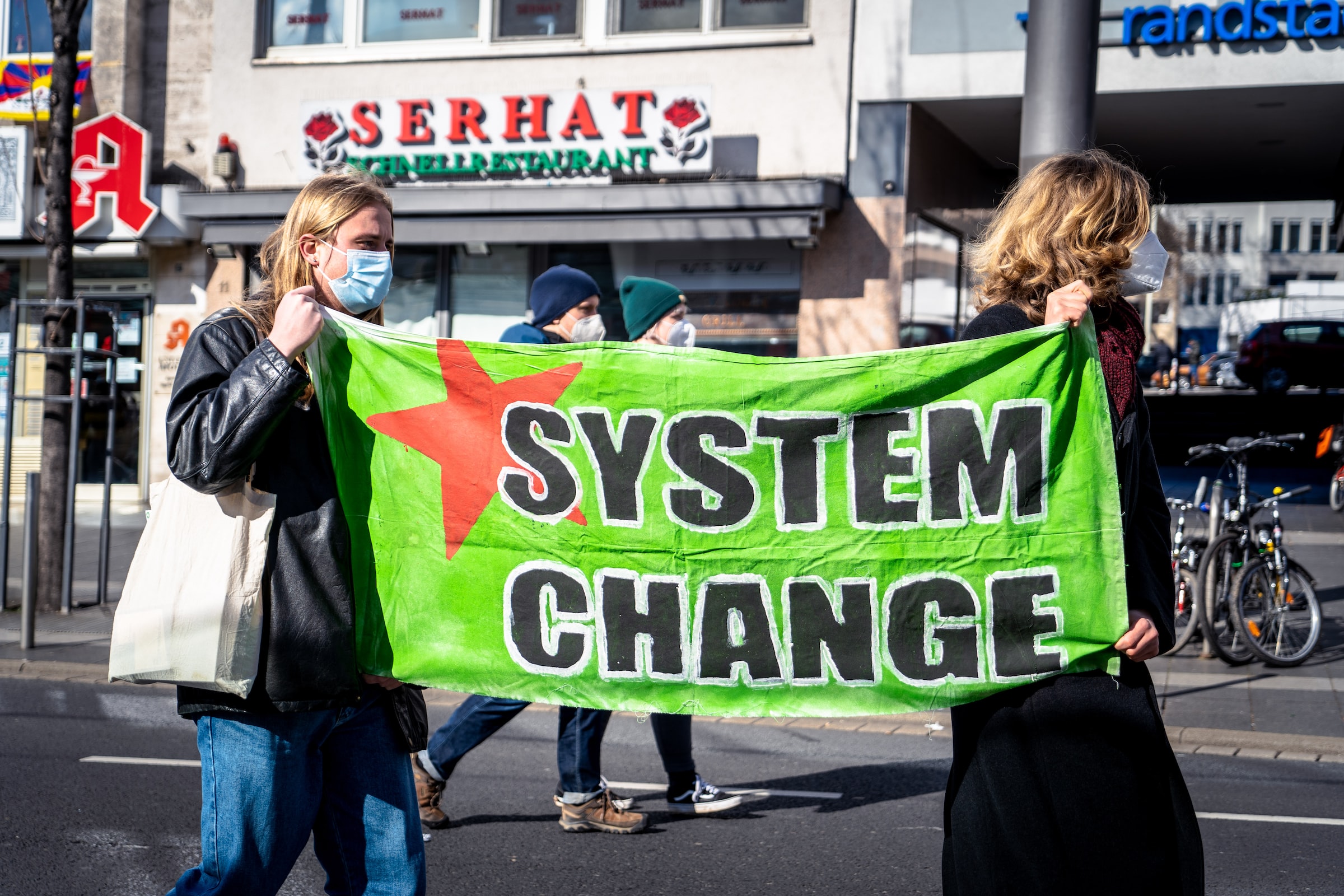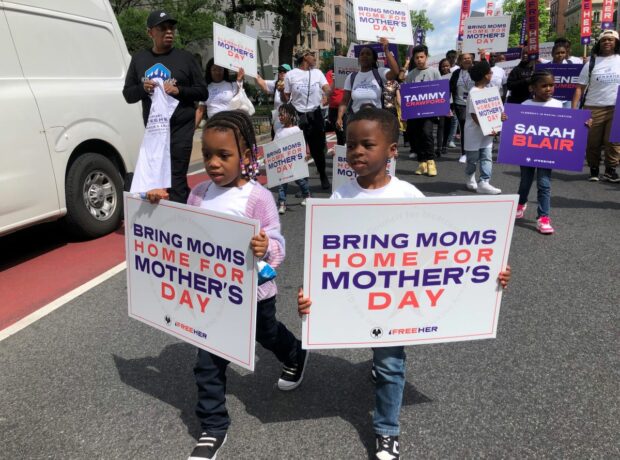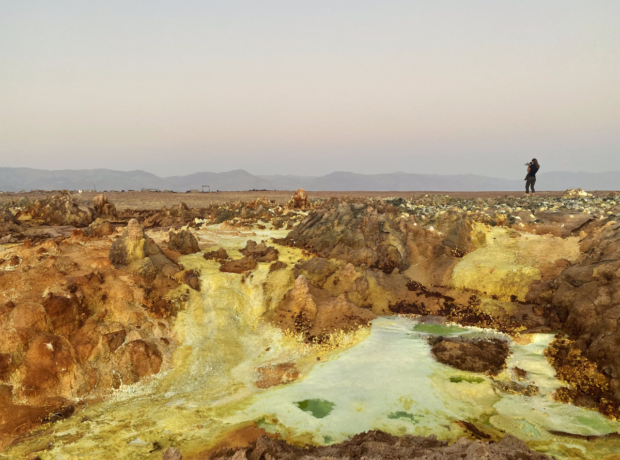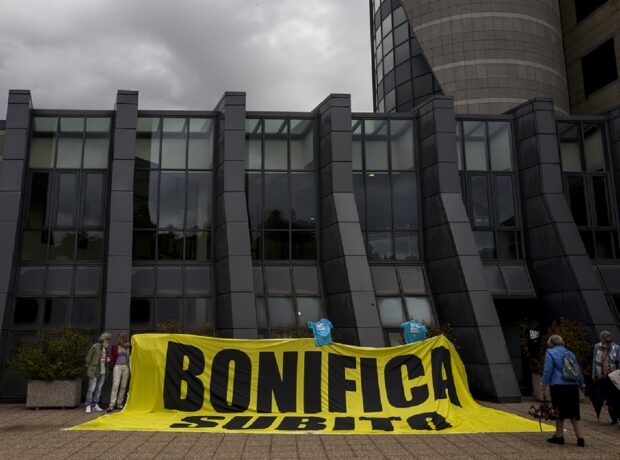In our latest episode of Spoken Earth, Adam Weymouth speaks with Max Ajl about what a true eco-socialism would look like, and how the world might get there
“I don’t think you change the world without a romance of what the world could be, or maybe a romance of what the world used to be. Romance is only disdained by people living in steel cages.”
The ‘Green New Deal’ is a hard phrase to ignore these days. It invokes the language, intentionally, of Franklin D. Roosevelt’s New Deal, a series of social and economic reforms and public investments in the US in the 1930s that were intended as a means of tackling the legacy of the Great Depression. A Green New Deal attempts the same, demanding state interventions to tackle the climate crisis while at the same time bringing about other benefits to society and tackling social ills.
At its best, it is a way of framing the climate crisis as something holistic, part of all of our lives, and suggests that what is good for the environment is also good for all of us that live as part of it.
The Green New Deal can trace its lineage to the early 2000s, but it only really entered common parlance when Alexandria Ocasio-Cortez and Ed Markey tried to get legislation passed in 2019, but it failed to progress through the Senate. Since then Green New Deals have appeared widely – in the UK, it has cross-party backing from Labour’s Ed Milliband, Green MP Caroline Lucas and former Conservative MP Laura Sandys, while Labour committed to a Green New Deal during its 2019 party conference. There are versions in Canada, Australia, South Korea and the EU. Many Covid-19 recovery programmes have adopted elements of Green New Deals, as economies and states plan how to rebuild after two years of the pandemic.
Yet in his book, A People’s Green New Deal, Max Ajl argues that currently there is no Green New Deal that goes anywhere near far enough. There is no Green New Deal, he says, that is attempting to redress a global balance, and thinking about what a sustainable, flourishing future means for the global south.
No one is speaking about demilitarisation. No one is speaking about climate reparations. If we are truly interested in a radical transformation of society – not something that continues to perpetuate the same inequalities but with an added green veneer – then this should concern us deeply.
Photo by Mika Baumeister on Unsplash
By making deep and radical proposals, and with a particular focus on land use, Ajl argues for a People’s Green New Deal that doesn’t merely swap out one form of capitalism for something with a green veneer, but that instead pushes a form of eco-socialism that has at its heart the wellbeing of the planet and every person on it. Ajl cites the People’s Agreement of Cochabamba (title image) as an example of a document which addresses the climate crisis through an anti-capitalist framework which puts indigenous people at the heart of climate justice.
Find out more and listen to the episode here.
This is the latest in our Spoken Earth podcast. Find more interviews and episodes here.
Read more:
- Uganda’s Batwa community are vulnerable to climate change, but aren’t involved in adaptation decisions
- 5 young women using their voices to advocate for climate justice
- In pictures: The human and environmental toll of mass Rohingya migration
Featured image by The City Project via Flickr
